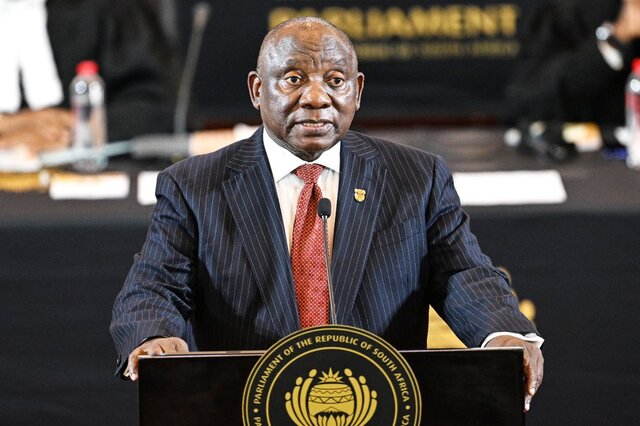Pretoria — South Africa’s 10-party government of national unity is the best option for the country and the costs of failure would be “very high”, President Cyril Ramaphosa said on Friday.
The alliance, forged after the African National Congress (ANC) lost its majority in May elections, brings together diverse centrist or conservative parties, including some of the ANC’s fiercest critics.
A dispute over an education bill that Ramaphosa signed on Friday, despite objections led by the second-largest party in the unity government, the Democratic Alliance, has underscored the challenges facing the alliance.
The DA has instructed its lawyers to pursue legal action to challenge the constitutionality of the BELA Bill. President Cyril Ramaphosa signed the Basic Education Laws Amendment Bill into law yesterday. The bill, meant for education reform and eradication of discriminatory… pic.twitter.com/tn5tXi19nf
— Newzroom Afrika (@Newzroom405) September 14, 2024
“Prior to the elections, people were concerned about where the country was going to, investors were holding back, and our economic growth trajectory seems to be at a stall,” Ramaphosa told journalists.
But he said the unity government had bolstered confidence and opened opportunities for growth and development.
“It is for this reason that I say the risks would be very, very high of the failure of the government of national unity,” he said.
“We, therefore, have no option but to move forward and consolidate the government of national unity and bring about stability.”
Ramaphosa said the parties in government had reiterated to him their commitment to stay in the alliance, even if they expressed disagreement over certain issues.
“That is what gives me confidence about not only the stability but the durability of the government of national unity,” Ramaphosa said. “That is the best thing that we now have to move the country forward.”
[WATCH] “The failure of the government of National Unity will be quite ghastly for the country.”Ramaphosa responds to a question of how the country will be affected should the GNU collapse.#RAMAPHOSAQ&A #Newzroom405 pic.twitter.com/MDBxAKdNJJ
— Newzroom Afrika (@Newzroom405) September 13, 2024
Until the 2024 elections, the ANC had governed South Africa with a majority for 30 years, taking power in the first all-race elections in 1994.
But the party won only 40 percent of votes in the May election, its poorest showing ever and a reflection of anger about corruption, mismanagement, unemployment, crime and inequality.
Ramaphosa said there had been mistakes over the past 30 years, “but that does not detract from the fact that there has been progress in the lives of South Africans”.
He has prioritised growth and job creation for his government, including the economic empowerment of black South Africans.
The country is rated as one of the most unequal in the world, with an unemployment rate of more than 33 percent.
Follow African Insider on Facebook, Twitter and Instagram
Source: AFP
Picture: X/@ParliamentofRSA
For more African news, visit Africaninsider.com


